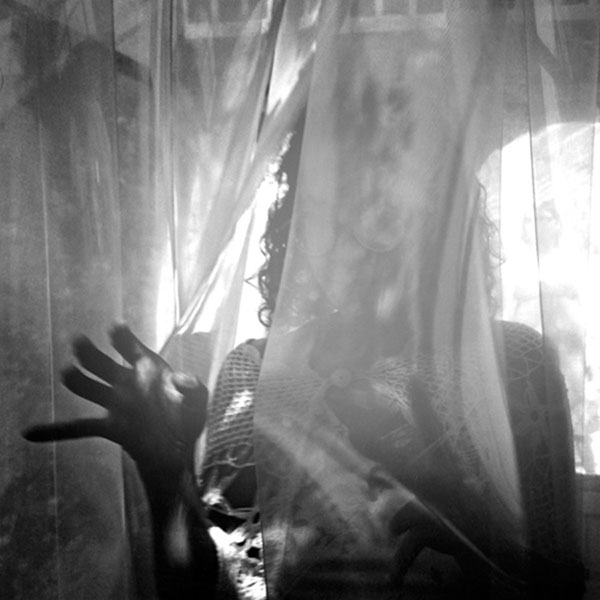Douglas Martin wears black on the outside, because that’s the way he feels on the inside. Or something.
From the outset of Crush, Abe Vigoda draws a bold line in the sand between themselves and their past efforts. Gone are the bright, jangly guitars, calypso-influenced punk, and gleeful destruction of breakout debut Skeleton. Their Reviver EP was a sidestep from their creative-but-slightly-limiting sound, combining divebombing guitars with emotionally uncomfortable feedback-laden lullabies and an unexpectedly sublime cover of Stevie Nicks’ “Wild Heart.” It’s probably for the best that Lindsey Buckingham’s solo work has yet to receive the art-punk treatment. Starting out with a doleful new-wave intro, “Sequins” evokes a desperate after-hours feel, the feeling of which intensifies greatly about halfway through, where glittery synths stand toe-to-toe with singer Michael Vidal’s vehement wailing. More downcast than anything found on Skeleton, the band is clear from jump that Crush is not that type of party. Or any type of party.
Thankfully, the new black outfit suits the band well. The electronic undertones of “Repeating Angel” and “Dream of My Love (Chasing After You)” bear traces of late-80’s goth, with Vidal taking a theatrical turn in his singing to compliment the nuanced instrumentation. Lead single “Throwing Shade” acts as the bridge between the band’s two records, with its main guitar riff lifted straight from the tropics and being underscored by overpowering Casio keys, threatening to swallow the entire song whole. The electronic influence is most noticeable on closer “We Have to Mask,” where live drums and drum machines are presented in stark juxtaposition, as are the keyboards and guitar, all of which pay off superlatively during the woozy climax of the end coda.
Of course, if Crush were only satisfied with mining New Wave nostalgia like so many bands did at the turn of the century, the record would be as played out as the Urban Outfitters neon windbreakers from the same era. Most everywhere else, clanging guitars and rapid-fire drumbeats rule the roost. “Pure Violence” and “Beverly Slope” evoke the feeling of brisk walking through the downtown section of any major metropolis in the middle of the night from your now-ex-lover’s apartment, all heart-wringing discomfort while looking over your shoulder, making sure there’s nobody behind you waiting for the chance to mug you. The album’s most immediate and thrilling moments come from when the band ratchets up the volume and lets the squall lead them to new places. The title track is furiously desperate, with overdriven guitars plowing through everything within reasonable distance, all while keeping the drums measured and steady. “November,” the record’s highlight, benefits greatly by its sense of chaos– the bleating six-strings tilting every which way, drowning out Vidal’s anxious vocals.
Unlike its predecessors, Crush finds Abe Vigoda going in several contrasting directions, all while maintaining a sense of fluidity and excitement, even moreso than their more celebratory debut. If Skeleton marked the arrival of a vibrant young punk band settling on a really good sound, Crush is the record where they fearlessly assert that they can do whatever they want with it. And we all know that doing whatever you want is the most punk thing anyone could possibly do.
Download:
MP3: Abe Vigoda-“Throwing Shade”
MP3: Abe Vigoda-“November”


